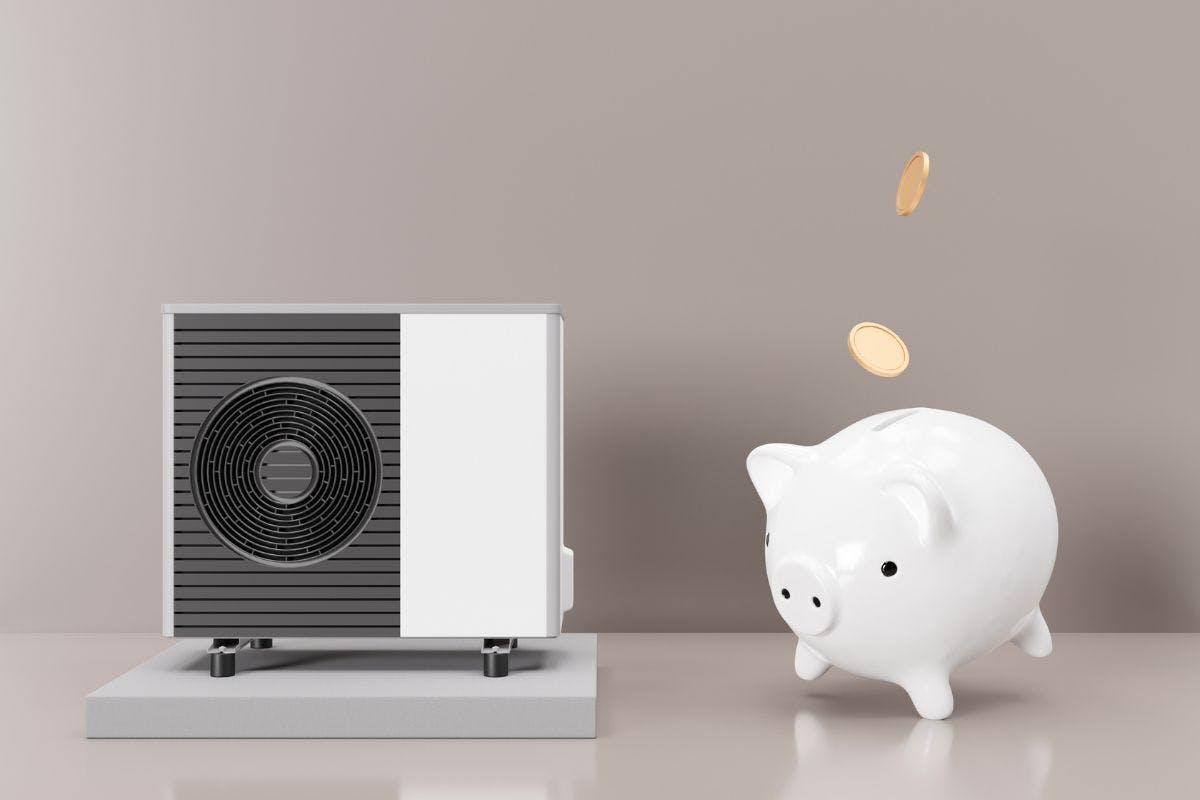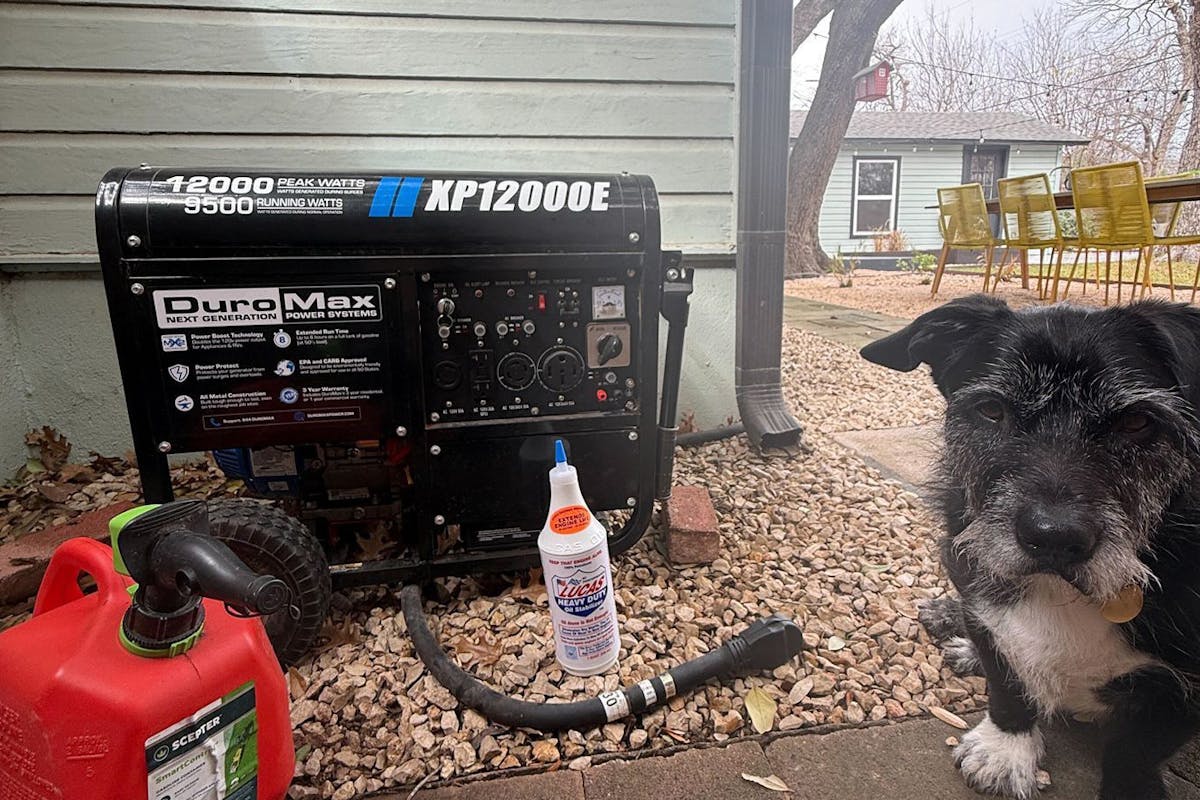Heat Pump vs. Electric Baseboard Heating
Last edited
Author
Andrew Giermak
Solar and Electrification Writer and Editor
Editor
Andrew Blok
Electrification and Solar Writer and Editor

Did you pay more than ever to keep your home warm last winter? One answer to higher energy bills may be a more energy-efficient heating system. For many homes, a heat pump is the most cost-effective and energy-saving solution for home heating and cooling in one system.
A new, efficient heat pump may give you the most comfortable, reliable, and affordable heating and cooling. Heat pumps are the best fit in more climates and regions than ever. This guide goes into the advantages of heat pumps compared to electric baseboard heating.
See how much you can save with a new HVAC system from Palmetto
How Are Heat Pumps Different From Electric Baseboard Heating?
Many homes had and still have electric baseboard heating. More people are going to heat pumps for home heating and cooling combined. Here are the basics on how both systems work.
Heat pump
Heat pumps are all-in-one electric heating and cooling devices. A heat pump is energy efficient primarily because it is not generating heat from the fuel or energy source. Instead, a heat pump extracts heat from the air outside — even when it’s cold — and brings it into the home.
In cooling mode, a heat pump basically works in the reverse way, removing heat from the indoor air and sending it outside. You can think of a heat pump like an air conditioner that, in heating mode, works in reverse.
Electric baseboard
Electric baseboard heating uses electrical resistance to heat metal coils inside the device to heat the air in the room. Baseboard heating relies on convection within the room. When cool air naturally falls, the heater draws in air near the floor of the room, and heats the air as it goes through.
Benefits of Heat Pumps vs. Baseboard Heating
Heat pumps have a number of benefits compared to baseboard heating and other forms of home heating. Most people can save money and energy by switching to a heat pump for home heating and cooling.
Energy efficiency
Heat pumps move heat, to heat or cool, instead of consuming a fuel source to generate heat. Heat pumps can reduce a home’s electricity use for heating by up to 75% compared to baseboard heating and other systems according to the Department of Energy.
Heat pumps put out three to four times more energy as heat than they consume in electricity. Compare that to the efficiency of an electric baseboard heater or a gas furnace which produce about one unit of heat for every unit of electricity or gas they consume.
For the best energy efficiency, and lowest energy costs, consider searching Energy Star-certified heat pumps. Energy Star certification means an appliance has higher energy efficiency and performance standards verified by the Department of Energy.
Adapted from the Department of Energy
Two-in-one system
Heat pumps give you heating and cooling in one system as opposed to having electric baseboard heating and another system for cooling. While the upfront cost of a heat pump can be more, it could be a better option than needing to replace or upgrade both a heating system and a cooling system.
Operating cost
With lower energy usage and the service and maintenance cost of one system instead of two, most people can save money with a heat pump.
Incentives
Energy-efficient heat pumps are often eligible for incentives, tax credits, and/or rebates at the federal, state and local levels. On federal taxes, the Energy Efficient Home Improvement Credit, as part of the Inflation Reduction Act, lets qualified homeowners claim a tax credit of 30% of the cost of purchasing and installing qualified heat pumps, up to $2,000. The tax credit applies is in place through the end of 2025.
Noise level
Newer heat pumps are generally quieter than older HVAC systems. Heat pumps are designed to be most efficient while running at low, consistent speeds instead of cycling on and off frequently.
See how much you can save with a new HVAC system from Palmetto
Cost of Heat Pumps vs. Baseboard Heaters
US households used about 52% of their energy on heating and cooling in 2020 according to the US Energy Information Administration. In 2023, the average monthly electric bill was $138.
Cutting about 75% of the electricity you’re using on heating by switching from baseboard heaters to a heat pump could be significant savings.
Electric baseboard heating is typically more expensive and more energy-intensive. Estimates put the monthly operating cost of electric baseboard heating at about $400-$900. This depends on home size (or how much of the home you’re heating), usage, climate, and electric rates.
Another option for getting a heat pump is a heat pump lease, which removes the upfront cost of purchase and replaces it with predictable monthly payments. Palmetto’s Comfort Plan will give you a new, energy-efficient heat pump system with no purchase or installation cost. Comfort Plan customers also get all maintenance and service included and flexible options for purchasing the system after five years.
Is a Heat Pump or Baseboard Heating Better for Your Home?
For an increasing number of homes, energy-efficient heat pumps are the best choice for your home heating and cooling. You might be able to replace two older systems with one new system. Tax credits and other incentives might bring the initial purchase and installation expense of a heat pump down.
It’s possible to reduce or move toward eliminating your gas bill as a heat pump can be a big move toward overall home electrification. Pairing an electric, high-efficiency heat pump with home solar power can lead to even bigger cost and energy savings as you could largely or fully run your home heating and cooling on clean, cheap, renewable energy.
To learn more about heat pumps, home solar panels, and other home energy improvements, you can use Palmetto’s Savings Maximizer.
See how much you can save with a new HVAC system from Palmetto
Frequently Asked Questions
Can a heat pump replace baseboard heaters?
A heat pump can replace baseboard heaters, a furnace, or central air conditioning. Heat pumps provide home heating and cooling in the same system so you may be able to replace two systems with one upgrade.
Is it cheaper to run a heat pump or electric baseboard heaters?
Heat pump heating is more efficient and less expensive than electric baseboard heating. Figures from the US Department of Energy show heat pumps use about 75% less energy than baseboard heating, central AC, and other heating and cooling systems.
What are the downsides of electric baseboard heating?
Electric baseboard heating generally uses more power than heat pump heating, resulting in higher energy bills. Baseboard heaters can also be a burn or fire risk, especially for children and pets, or furniture put too close to them.
Disclaimer: This content is for educational purposes only. Palmetto does not provide tax, legal, or accounting advice. Please consult your own tax, legal, and accounting advisors.



